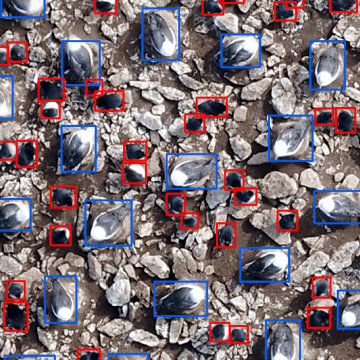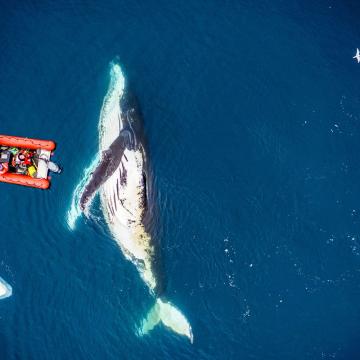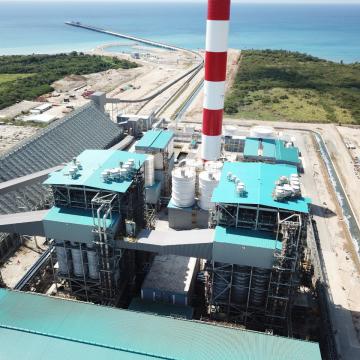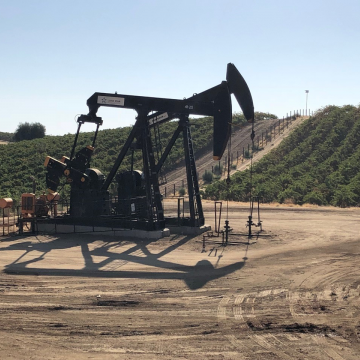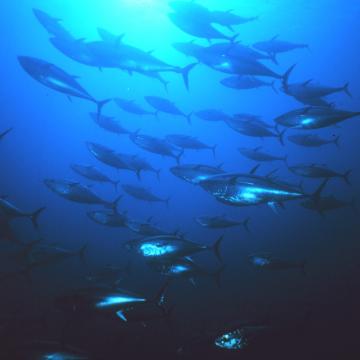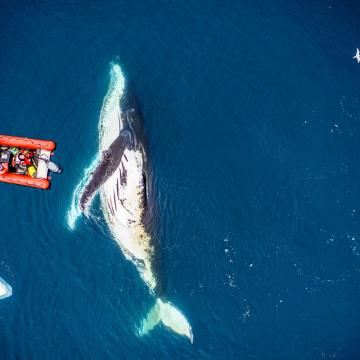-
NewsUsing drones and artificial intelligence to monitor large colonies of seabirds can be as effective as traditional on-the-ground methods while reducing costs, labor and the risk of human error, a new study finds.
-
NewsReducing emissions of methane, a short-lived but super-potent greenhouse gas, is the most cost-effective way to slow the rate of Earth’s warming in coming decades, a new United Nations report finds.
-
NewsThe WildTrack Specialist Group, a global network of biologists and conservationists dedicated to using only non-invasive techniques to monitor and protect endangered species, will be launched April 22 to celebrate Earth Day.
-
NewsOcean mammals are at a crossroads, with some species at risk of extinction and others showing signs of recovery, a new study by an international team of researchers shows.
-
NewsDuke University researchers have found high levels of toxic heavy metals in coal ash from the Dominican Republic’s largest coal-fired power plant.
-
NewsMassive power outages in Texas brought on by a historic freeze could be avoided in the future if the state no longer isolates its power grid from other states, among other steps, according to Duke University experts.
-
NewsInteractive software that “reads” and analyzes footprints left by black rhinoceroses can be used to monitor the movements of the animals in the wild, giving conservationists a new way to keep watch on the endangered species and help keep it safe from poachers, according to a Duke University-led study.
-
NewsScientists at Duke University are harnessing the power of big data and geospatial analysis to create new ways to track the effects of climate change on species and food webs.
-
NewsReusing low-saline oilfield water mixed with surface water to irrigate farms in the Cawelo Water District of California does not pose major health risks, as some opponents of the practice have feared, a study led by Duke University and RTI International researchers finds.
-
NewsA new $2.44 million grant from the U.S. Department of Energy’s Advanced Research Projects Agency-Energy (ARPA-E) will support a Duke University-led initiative to help utilities and wholesale electricity markets improve their efficiency and reliability while reducing emissions and costs, at a time of needed transformations to tackle climate change.
-
NewsThe Migratory Connectivity in the Ocean (MiCO) system, an online open-access global database that maps the movements of sea turtles, whales, sea birds and other migratory species through the open ocean, has been awarded the 2020 Innovation Award by the Ocean Awards program.
-
NewsA Duke Ph.D. candidate in marine science and conservation uses drones to measure whales and other marine mammals.
-
NewsTanker traffic through the Strait of Hormuz can decline for up to two years after a piracy attack, a new Duke University study finds, but the adverse effects of the slowdown are far greater on some Persian Gulf countries than others.
-
NewsInhaling dust that contains fly ash particles from coal combustion has been linked to lung and heart disease, cancer, nervous system disorders and other ill effects. But tracking the presence of coal ash in dust has been a challenge for scientists.
-
NewsThe ongoing transition from coal to natural gas and renewables in the U.S. electricity sector is dramatically reducing the industry’s water use, a new Duke University study finds.
